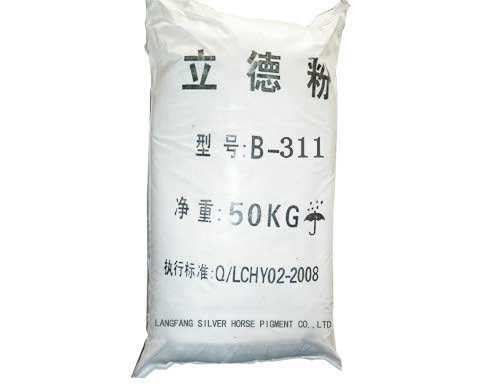
Nov . 12, 2024 14:14 Back to list
classification of calcium carbonate supplier
Classification of Calcium Carbonate Suppliers
Calcium carbonate, a widely used chemical compound composed of calcium, carbon, and oxygen, has a variety of applications across multiple industries including construction, food production, pharmaceuticals, and plastics. As a result, suppliers of calcium carbonate vary significantly in terms of their classification, product offerings, and target markets. In this article, we will explore the main classifications of calcium carbonate suppliers, shedding light on their unique characteristics and roles in the global market.
1. Natural vs. Synthetic Suppliers
The first significant classification of calcium carbonate suppliers can be based on the source of the material—natural or synthetic. Natural calcium carbonate is derived from limestone, marble, and chalk, whereas synthetic calcium carbonate is typically produced through a chemical reaction involving carbon dioxide and calcium hydroxide.
- Natural Suppliers These suppliers source their calcium carbonate from natural deposits, utilizing mining and milling processes to produce fine powders or granules. Natural calcium carbonate is often favored for applications where minimal processing is required, such as in the construction industry or as a filler in paper production.
- Synthetic Suppliers Synthetic calcium carbonate suppliers manufacture the compound to meet specific purity and particle size requirements. This form is often preferred in high-demand applications such as pharmaceuticals or food additives, where strict quality control is essential.
2. Ground Calcium Carbonate (GCC) vs. Precipitated Calcium Carbonate (PCC) Suppliers
Another crucial classification revolves around the type of calcium carbonate produced, which can be categorized into Ground Calcium Carbonate (GCC) and Precipitated Calcium Carbonate (PCC)
.- GCC Suppliers They provide ground calcium carbonate, which is produced by mechanically crushing and grinding limestone. GCC is used in various applications such as plastics, paints, and rubber. GCC suppliers often focus on consistent particle size distribution and color accuracy, catering to industries where these factors are critical.
- PCC Suppliers Precipitated calcium carbonate is synthesized by a controlled chemical process, resulting in a product with a high degree of purity and specific particle shapes. PCC suppliers often serve niche markets, particularly in specialty applications like toothpaste, where the texture and reactivity of the calcium carbonate can vastly impact the end product.
classification of calcium carbonate supplier

3. Regional Suppliers
Geographical location also plays a significant role in the classification of calcium carbonate suppliers. Suppliers can be categorized based on their regional presence and the local availability of raw materials.
- Local Suppliers These are companies that operate within specific regions or countries and primarily supply local manufacturers. They may benefit from reduced transportation costs and quicker delivery times.
- Global Suppliers In contrast, global suppliers possess a broader market reach, often operating in multiple countries or continents. They can leverage economies of scale, which enables them to offer competitive pricing. Furthermore, they may have more extensive product lines and capabilities for customization to meet diverse international standards.
4. Industrial vs. Specialty Suppliers
Lastly, suppliers can be classified based on their industry focus—industrial or specialty.
- Industrial Suppliers These suppliers cater to high-volume markets, including construction and manufacturing. Their primary goal is to provide cost-effective, bulk materials that meet the essential requirements of industry standards.
- Specialty Suppliers These suppliers focus on niche applications, often providing high-purity products with specific performance characteristics. They may develop tailored solutions for industries such as healthcare, cosmetics, and advanced materials. Working closely with customers, specialty suppliers often invest in research and development to innovate tailored product formulations.
Conclusion
The classification of calcium carbonate suppliers is multifaceted, reflecting the diverse nature of the compound and its varied applications. From natural and synthetic suppliers to GCC and PCC providers, each category plays a crucial role in meeting the demands of different market sectors. Understanding these classifications helps businesses identify the most suitable suppliers that align with their specific needs, ensuring that they acquire high-quality calcium carbonate for their production processes. As industries continue to evolve and demand more specialized products, the calcium carbonate supplier landscape will likely adapt, further diversifying the classifications and offerings available in the market.
-
Best Baso4 Price Wholesale & Manufacturer Deals in China
NewsApr.29,2025
-
Rutile Titanium Dioxide R698 Supplier Coating & Paint Solutions
NewsApr.29,2025
-
Premium Titanium Dioxide Ultra White Paint High-Coverage & Durable
NewsApr.29,2025
-
China Titanium & TiO2 Powder Factory Reliable Rutile & Lithopone Supplier
NewsApr.28,2025
-
Titanium Dioxide Types High-Purity Grades from Trusted Factories & Suppliers
NewsApr.28,2025
-
High-Quality Titanium Dioxide White Pigments Wholesale Supplier
NewsApr.28,2025
